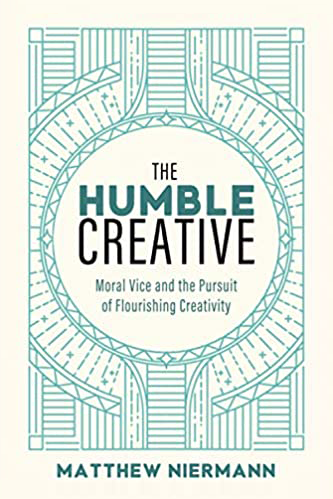Contemporary creative culture fosters moral vice and demands a prideful character. How can a Christian pursue creativity differently?
Creativity is lauded as one of the most valuable attributes of our day. LinkedIn, a popular employer-employee networking website, studied its vast network of approximately 700 million members and 50 million companies in order to learn which skills are most in demand.[1] In 2019 and 2020 the results were the same. The most sought-after employee attribute was creativity.
It is important to note that LinkedIn’s research spanned the full range of economic sectors and applied disciplines. All too often notions of creativity are relegated to the fine and applied arts: the artists, musicians, or performers. Yet as this study shows, creative ability is key for a vast array of human activity from mathematicians, scientists, and entrepreneurs to surgeons and athletes.
The most sought-after employee attribute was creativity.
Creativity, God’s Image, and Vice
The observation of creativity’s expansive presence across human endeavors is no surprise to the Christian viewpoint. The Christian Bible teaches that God created the cosmos and all of life within it. As part of this act, God made a special creation, man and woman, and formed them in his own image.[2] Thus, because God is a creative God, and we are built in his image, we too are creative. Not just some of us—all of us.
But it is important to note that we have a limited ability to align our character and actions with God’s attributes. Christianity teaches that there is a distinction between the Creator and creation. We are created in God’s image; we are not God. Therefore, we do not possess these attributes perfectly like God does, and often live a life defined by moral vice.
Unfortunately, contemporary creative culture is fundamentally defined by vice. Pick up any book or article on creativity and it is filled with clichéd rallying cries of: Be True to Yourself! Find Your Voice! Express Your Authentic Self! Or in other words, look to yourself, and yourself only, as the source of goodness, truth, and beauty. Contemporary creative culture fosters moral vice and demands a prideful character.

When we practice creativity from a viceful character we sacrifice successful creativity on the altar of selfish desires. Vainglory, sloth, lust of the eyes, wrath, greed, envy, and pride poison our character and choke our creativity.
Who we are affects our creativity. Our moral character can either lead to disordered creativity or cultivate a flourishing creativity.
As followers of Christ, we must understand this prideful culture and dedicate ourselves to mirroring God’s attributes of creativity from a humble disposition. Only then, as a humble creative, can we see the healthy fruits from a flourishing creativity.
This creative humility code attempts to simplify what is, in reality, the manifestation of a very long journey that requires active partnership with God and the receiving of abundant grace.
A Code for Humble Creatives
What follows is a code of sorts, which delineates a description of a creative life defined by humility. This creative humility code attempts to simplify what is, in reality, the manifestation of a very long journey that requires active partnership with God and the receiving of abundant grace. Despite its limitations, the code seeks to provide a coherent picture of the humble roots necessary for a life of flourishing creativity.
The Humble Creative’s Code
- I recognize that the ultimate source of right and good cannot be defined by a fallen human nature. No single human is the fullest manifestation of goodness, truth, or beauty. Thus, we cannot simply look to our ‘own voice’ or ‘true self’ as the source. Instead we must look to external sources—exemplified best by God himself; and to do otherwise is prideful.
- I understand that, despite a fallen nature, humanity is made in the imago dei—the image of God. We have the innate ability to mirror God’s attributes, including creativity. We must also acknowledge that refinement does not happen on its own but is an intentional process and partnership with God. Any true moral development is spiritual development stemming from God’s grace.
- I have a willingness to secure my identity in God’s assurances and not the popular acceptance of creative work, not conflating creative works with personal identity. Thus, the humble creative exemplifies a creative process that is free to explore, experiment, and ultimately fail.
- I am dedicated to carrying out a creative process that fulfills the demands of love. Such a process places other’s needs over creative style or brand, defining creative aims through empathetic service, care, and love.
- I am committed to utilizing creative principles defined by goodness, truth, and beauty over and above the temptation to explore hedonistic curiosities. Such creativity does not seek novelty for novelty’s sake, but aims to really understand creation and the Creator well.
- I appreciate other creative individuals’ talents and successes. The humble creative avoids the corresponding feelings of doubt, insecurity, and bitterness, celebrating the success of other creative works for their role in bringing forward goodness, truth, and beauty.
- I have a proclivity to share ideas and collaborate within the creative process, knowing that the ultimate end of creativity is not self-glory, but a reconciliation of God and His creation. Such a creativity prioritizes the duty to act as an agent of reconciliation in this world, over and above the security of ownership.
- I appreciate that living out a life defined by humility is fundamentally counter-cultural, acknowledging that reaching such a level of flourishing creativity is not a one-and-done event. Rather, it is a long faithfulness in the same direction of pursuing humility, virtue, and Christlikeness. Such faithfulness knows that a life without intentionality—and God’s grace—will naturally drift towards vice. Yet despite the narrow path, the hope and longing for a flourishing creativity catalyzes action toward becoming a humble creative.
When we participate in creative acts, we do not merely express ourselves—we mirror God’s attributes. Thus, as Christians pursuing creativity, we should not pridefully work to ‘Be True to Ourselves’. Rather, as Christians pursuing creativity, we must humbly refine our character in Christ’s likeness. Only then, as humble creatives, can our creativity flourish as God intended.
 Editor’s Note: This article is based on the book, The Humble Creative: Moral Vice and the Pursuit of Flourishing Creativity. The Humble Creative aims to provide a first step in seeking a flourishing creativity by examining contemporary creative culture and identifying key areas in which this culture fosters specific vices in a creative’s life. The book is a rallying call to all Christian creatives to form their creativity from a disposition of humility.
Editor’s Note: This article is based on the book, The Humble Creative: Moral Vice and the Pursuit of Flourishing Creativity. The Humble Creative aims to provide a first step in seeking a flourishing creativity by examining contemporary creative culture and identifying key areas in which this culture fosters specific vices in a creative’s life. The book is a rallying call to all Christian creatives to form their creativity from a disposition of humility.
Endnotes
- Petrone, P. (2018, December 31). Why creativity is the most important skill in the world. LinkedIn: https://www.linkedin.com/business/learning/blog/top-skills-and-courses/why-creativity-is-the-most-important-skill-in-the-world ↑
- Genesis 1:27 ↑

